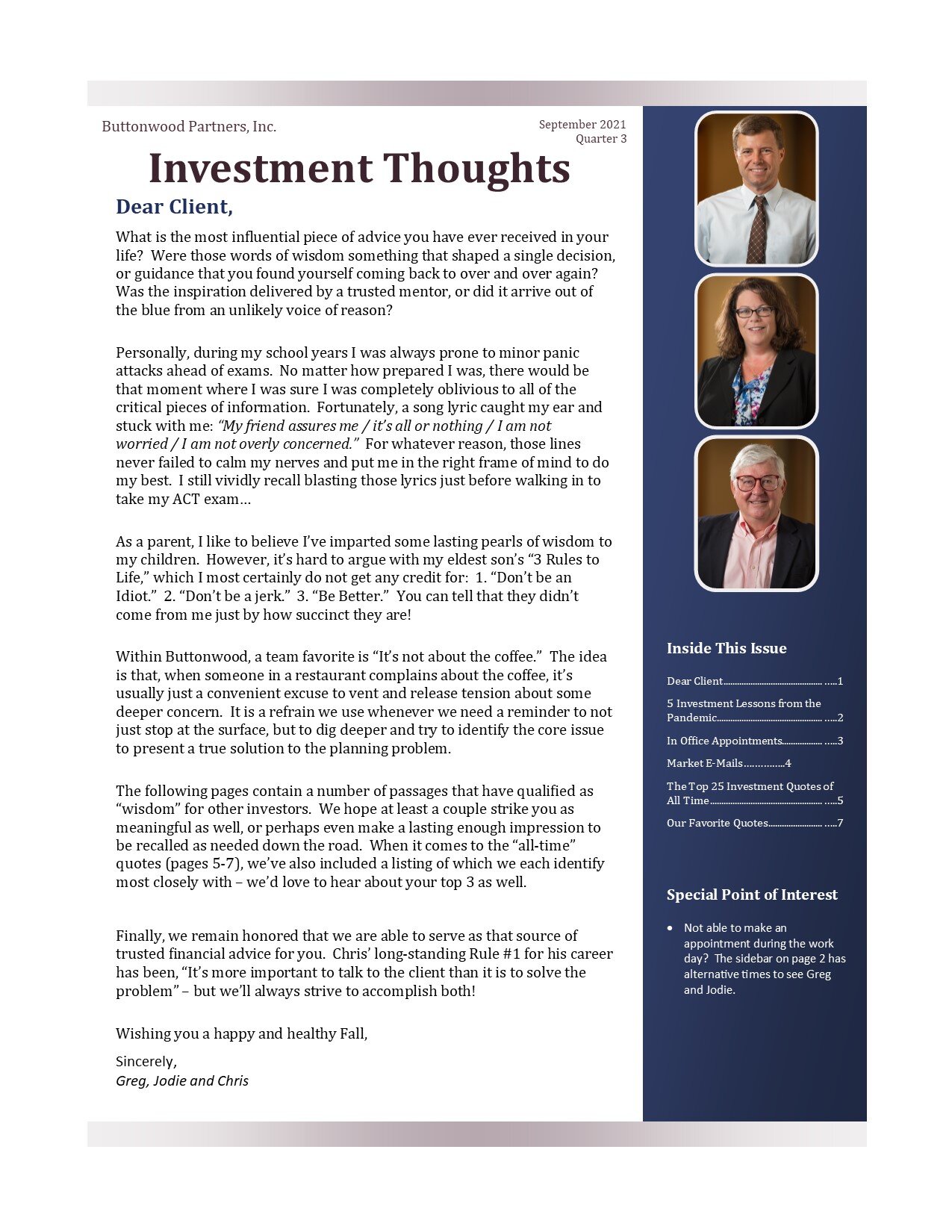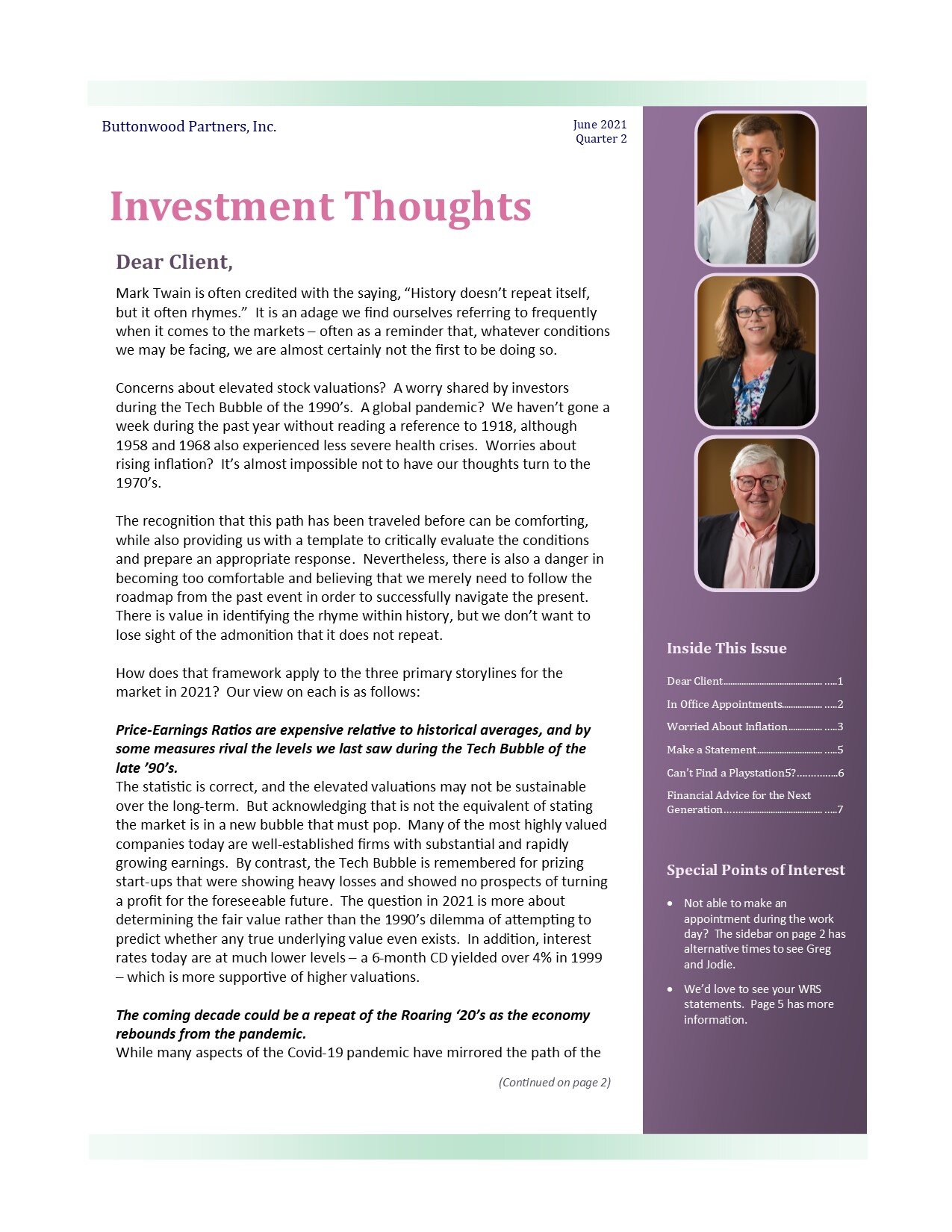Investment Thoughts Q3 2021
/Highlights In this issue:
5 Investment Lessons from the Pandemic - Capital Group / American Funds
The Top 25 Investing Quotes of All Time - Investopedia
Dear Client,
What is the most influential piece of advice you have ever received in your life? Were those words of wisdom something that shaped a single decision, or guidance that you found yourself coming back to over and over again? Was the inspiration delivered by a trusted mentor, or did it arrive out of the blue from an unlikely voice of reason?
Personally, during my school years I was always prone to minor panic attacks ahead of exams. No matter how prepared I was, there would be that moment where I was sure I was completely oblivious to all of the critical pieces of information. Fortunately, a song lyric caught my ear and stuck with me: “My friend assures me / it’s all or nothing / I am not worried / I am not overly concerned.” For whatever reason, those lines never failed to calm my nerves and put me in the right frame of mind to do my best. I still vividly recall blasting those lyrics just before walking in to take my ACT exam…
As a parent, I like to believe I’ve imparted some lasting pearls of wisdom to my children. However, it’s hard to argue with my eldest son’s “3 Rules to Life,” which I most certainly do not get any credit for: 1. “Don’t be an Idiot.” 2. “Don’t be a jerk.” 3. “Be Better.” You can tell that they didn’t come from me just by how succinct they are!
Within Buttonwood, a team favorite is “It’s not about the coffee.” The idea is that, when someone in a restaurant complains about the coffee, it’s usually just a convenient excuse to vent and release tension about some deeper concern. It is a refrain we use whenever we need a reminder to not just stop at the surface, but to dig deeper and try to identify the core issue to present a true solution to the planning problem.
The following pages contain a number of passages that have qualified as “wisdom” for other investors. We hope at least a couple strike you as meaningful as well, or perhaps even make a lasting enough impression to be recalled as needed down the road. When it comes to the “all-time” quotes (pages 5-7), we’ve also included a listing of which we each identify most closely with – we’d love to hear about your top 3 as well.
Finally, we remain honored that we are able to serve as that source of trusted financial advice for you. Chris’ long-standing Rule #1 for his career has been, “It’s more important to talk to the client than it is to solve the problem” – but we’ll always strive to accomplish both!
Wishing you a happy and healthy Fall,
Sincerely,
Greg, Jodie and Chris


